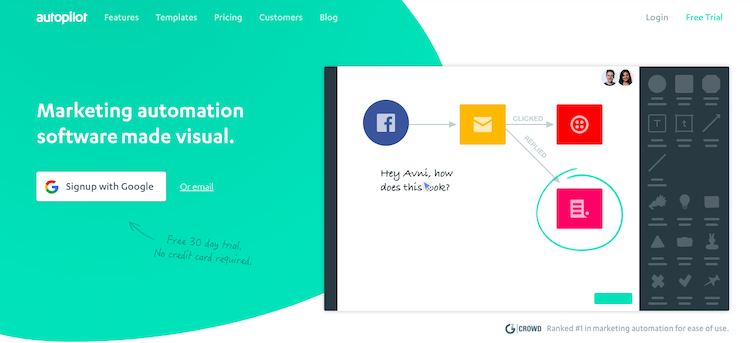In today’s digital age, having a strong online presence is crucial for businesses of all sizes. However, simply creating a website is not enough to attract the right audience and drive traffic. That’s where innovative software for building website traffic comes into play. With just 30 minutes of your time and 3 simple steps, you can boost your online visibility and effectively grow your business. Forget about traditional methods that may take ages to yield results. This software, aptly named Website Traffic Blaster, offers a surefire way to generate great traffic and establish a solid foundation for your online success.
![]()
1. Understanding the Importance of Website Traffic
A. The role of website traffic in online success
In the ever-evolving digital landscape, website traffic plays a pivotal role in the success of any online venture. It refers to the number of visitors that come to your website, and this traffic can either make or break your online presence. Having a steady stream of visitors indicates that your website is attracting attention and generating interest. This, in turn, can lead to a wide range of benefits, from increased brand visibility to higher conversions and sales.
B. How website traffic impacts your business growth
Website traffic is the lifeblood of any online business. Without it, your website would become a virtual ghost town, devoid of any activity or engagement. Increased traffic can bring in more potential customers, which means more opportunities for conversions and sales. It also helps to establish your brand as a reputable authority in your industry, as more people come across your website and its content. Moreover, a growing number of website visitors can boost your search engine rankings, which further increases your online visibility and attracts even more traffic.
C. Common misconceptions about website traffic
When it comes to website traffic, there are several common misconceptions that often cloud people’s understanding of its importance. One of these misconceptions is the belief that all traffic is created equal. While having a high volume of traffic is undoubtedly desirable, it is equally important to focus on the quality of the traffic. Targeted traffic, consisting of individuals who are genuinely interested in your products or services, is far more likely to result in conversions and sales. Another misconception is that website traffic is solely about numbers. While quantity matters, it is equally important to analyze other metrics, such as bounce rate, time on site, and engagement, to assess the true effectiveness of your traffic generation efforts.
2. Types of Software for Building Website Traffic
When it comes to building website traffic, leveraging various software tools can significantly enhance your efforts and make them more streamlined and effective. Let’s explore some of the key types of software that can help you drive traffic to your website.
A. Search Engine Optimization (SEO) tools
Search Engine Optimization (SEO) tools are a crucial component of any traffic generation strategy. They help you optimize your website and its content to rank higher in search engine results, making it easier for potential visitors to discover your website. SEO tools encompass a wide range of functionalities, including keyword research, on-page optimization, backlink analysis, and SEO auditing.
B. Content management systems (CMS)
Content management systems (CMS) help you create and manage the content on your website. These platforms provide a user-friendly interface that allows you to easily publish, edit, and organize your website’s pages and blog posts. Many CMS platforms also offer built-in SEO features that simplify the process of optimizing your content for search engines.
C. Social media management software
Social media has become a powerful tool for driving website traffic and engaging with your target audience. Social media management software enables you to streamline your social media marketing efforts by scheduling and automating posts, analyzing engagement metrics, and monitoring social conversations. These tools help you maximize your social media presence and leverage it to attract more visitors to your website.
D. Email marketing software
Email marketing remains one of the most effective ways to drive traffic to your website. Email marketing software allows you to build and manage an email list, create and send compelling email campaigns, and automate various aspects of your email marketing strategy. These tools enable you to nurture relationships with your subscribers and entice them to visit your website for more valuable content or special offers.
E. Advertising and paid traffic software
While organic traffic is desirable, sometimes it may be necessary to invest in paid advertising to boost your website traffic. Advertising and paid traffic software assist you in creating and managing online advertising campaigns across various platforms, such as search engines, social media, and display networks. These tools help optimize your ads and targeting to ensure that you get the most value from your advertising budget.
F. Analytics and tracking tools
Analytics and tracking tools provide invaluable insights into your website’s performance and visitor behavior. They allow you to monitor traffic metrics, analyze user engagement, and track conversion rates. By understanding how visitors interact with your website, you can identify areas for improvement and optimize your traffic generation efforts accordingly.
3. Search Engine Optimization (SEO) Tools
A. Importance of SEO in driving organic traffic
Search Engine Optimization (SEO) plays a critical role in driving organic traffic to your website. By optimizing your website and its content for search engines, you increase your chances of appearing higher in search engine results pages. This visibility drives more organic traffic as users are more likely to click on the top-ranking results. SEO tools help you identify relevant keywords, analyze your website’s SEO performance, and implement best practices to improve your search engine rankings.
B. Keyword research tools
Effective keyword research is the foundation of a successful SEO strategy. Keyword research tools provide insights into search volume, competition, and related keywords, helping you identify the most relevant and high-traffic keywords for your content. By targeting these keywords, you can increase your chances of ranking higher in search engine results and attracting organic traffic.
C. On-page optimization tools
On-page optimization involves optimizing various elements on your website, such as meta tags, headings, and content, to make it more search engine-friendly. On-page optimization tools provide recommendations and analysis to help you optimize these elements effectively. They ensure that your website aligns with best SEO practices and increases its visibility to search engines and users.
D. Backlink analysis and building tools
Backlinks are a crucial factor in SEO, as they signal to search engines that your website is reputable and trustworthy. Backlink analysis and building tools help you identify your existing backlinks, analyze their quality and relevance, and discover opportunities to build new backlinks from authoritative websites. By acquiring high-quality backlinks, you not only boost your search engine rankings but also attract traffic from the websites linking to you.
E. SEO auditing and monitoring software
Regularly monitoring and auditing your website’s SEO performance is essential to ensure that your traffic generation efforts are effective. SEO auditing and monitoring software enables you to identify and fix any SEO issues that may be hindering your website’s visibility and traffic. These tools provide comprehensive reports and actionable insights to optimize your website and maintain its search engine ranking.
4. Content Management Systems (CMS)
A. Overview of popular CMS platforms
Content Management Systems (CMS) are software platforms that facilitate the creation, management, and publication of digital content. They provide a user-friendly interface that simplifies the process of managing your website’s pages, blog posts, and other content types. Popular CMS platforms include WordPress, Joomla, Drupal, and Wix, each with its own features and capabilities.
B. Features and benefits of using CMS for website traffic
Using a CMS offers numerous benefits for building website traffic. Firstly, CMS platforms often come with built-in SEO features, such as customizable meta tags, friendly URLs, and XML sitemaps, which help optimize your content for search engines. Additionally, CMS platforms provide responsive and mobile-friendly templates, ensuring that your website is accessible across different devices and screens. This accessibility enhances your website’s user experience and encourages visitors to stay longer and explore further, increasing the chances of conversion and return visits.
C. Tools for optimizing content for search engines
CMS platforms typically offer various tools and plugins that can help optimize your content for search engines. These tools allow you to add and customize meta tags, optimize headings and structure, and analyze keyword density. By utilizing these features, you can ensure that your content is optimized for search engine visibility, attracting more organic traffic to your website.
D. User-friendly website builders with built-in SEO features
Some CMS platforms, such as WordPress and Wix, offer user-friendly website builders that allow you to create visually appealing and functional websites without any coding knowledge. These website builders often come with built-in SEO features, such as SEO plugins and customizable meta tags, making it easier to optimize your website for search engines. By leveraging these tools, you can save time and effort while still driving traffic to your website.

5. Social Media Management Software
A. Strategies for driving traffic through social media
Social media has become an integral part of any comprehensive traffic generation strategy. To effectively drive website traffic through social media, it is essential to develop and implement strategies that resonate with your target audience. This includes creating engaging and shareable content, actively participating in relevant social media communities and groups, leveraging influencers and partnerships, and running targeted ad campaigns. By consistently implementing these strategies, you can attract a larger audience to your website via social media channels.
B. Social media scheduling and automation tools
Consistency plays a significant role in social media success. Social media scheduling and automation tools enable you to plan and schedule your social media posts in advance, ensuring a consistent flow of content. These tools save time and effort by automating the posting process across multiple social media platforms. By maintaining a consistent social media presence, you can keep your audience engaged and drive consistent traffic to your website.
C. Social listening and engagement tools
Social listening allows you to monitor and analyze social media conversations relevant to your industry or brand. Social listening tools help you gain insights into audience preferences, identify trending topics, and track mentions of your brand or products. By actively engaging with your audience and participating in relevant conversations, you can build a loyal following and drive traffic to your website through social media interactions.
D. Social media analytics and reporting software
Analyzing the performance of your social media efforts is crucial to determine which strategies are effective and which need improvement. Social media analytics and reporting software provide detailed metrics and reports on various social media platforms, allowing you to assess the impact of your marketing campaigns and track important engagement metrics. By analyzing this data, you can refine your social media tactics and optimize your traffic generation efforts for better results.
6. Email Marketing Software
A. Building an email list for driving website traffic
Email marketing is a powerful tool for driving website traffic and nurturing customer relationships. To effectively leverage email marketing, you need to build an email list comprising individuals who have shown interest in your products or services. This can be achieved through various methods such as opt-in forms, lead magnets, and gated content. By building a targeted and engaged email list, you can drive traffic to your website by sending relevant and valuable email campaigns.
B. Creating effective email campaigns
Creating effective email campaigns involves crafting compelling and personalized content that resonates with your subscribers. This can include newsletters, product updates, exclusive offers, or educational content. Email marketing software provides templates and design tools that enable you to create visually appealing emails and automate the process of sending them to your subscribers. By creating engaging and targeted email campaigns, you can drive traffic to your website and nurture leads into customers.
C. Email automation and segmentation tools
Email automation allows you to streamline your email marketing efforts by sending personalized emails at the right time based on predefined triggers or user behavior. Email automation tools enable you to segment your email list based on various criteria, such as demographics, past interactions, or purchase history. By segmenting your list and automating your emails, you can deliver highly relevant content to your subscribers, driving increased traffic to your website.
D. Analyzing email marketing performance
Tracking and analyzing the performance of your email marketing campaigns is crucial to measure their effectiveness and make data-driven decisions. Email marketing software provides comprehensive analytics and reporting features that allow you to track metrics such as open rates, click-through rates, and conversions. By analyzing this data, you can identify trends, modify your campaigns, and optimize your email marketing strategy to drive more traffic to your website.

7. Advertising and Paid Traffic Software
A. Introduction to paid advertising for website traffic
While organic traffic is desirable, sometimes it may be necessary to invest in paid advertising to achieve your traffic generation goals. Paid advertising refers to the practice of displaying ads on various online platforms, such as search engines, social media platforms, and display networks, in exchange for a fee. This form of advertising allows you to reach a wider audience and generate immediate traffic to your website.
B. Online advertising platforms
There are several online advertising platforms available, each offering unique features and targeting options. Common online advertising platforms include Google Ads, Facebook Ads, Twitter Ads, LinkedIn Ads, and Microsoft Advertising. These platforms allow you to create and manage ad campaigns, target specific demographics or interests, and set budgets and bidding strategies. By utilizing these platforms, you can drive targeted traffic to your website and increase your chances of conversions.
C. Ad management and optimization tools
Running successful ad campaigns requires careful management and optimization. Ad management and optimization tools assist in creating, monitoring, and optimizing your ads to generate the maximum impact and traffic. These tools provide features such as ad scheduling, A/B testing, and conversion tracking. By continuously optimizing your ads based on the data and insights provided by these tools, you can achieve better results and increase your website traffic.
D. Retargeting and remarketing tools
Retargeting and remarketing are powerful techniques for driving website traffic by reaching out to individuals who have previously interacted with your brand or website. Retargeting tools enable you to display targeted ads to individuals who have visited your website but have not converted. Remarketing tools allow you to reconnect with individuals who have subscribed to your email list but have not engaged further. By utilizing retargeting and remarketing tools, you can keep your brand top-of-mind and drive traffic from potential customers who are already familiar with your business.
8. Analytics and Tracking Tools
A. Importance of tracking website traffic
Tracking website traffic is vital to understanding the effectiveness of your traffic generation strategies and making informed decisions for improvement. Analytics and tracking tools enable you to gain insights into various metrics, such as the number of visitors, their demographics, behavior, and conversion rates. By tracking these metrics, you can identify areas for improvement, measure the success of your campaigns, and optimize your website to attract and retain more traffic.
B. Web analytics platforms and metrics
Web analytics platforms provide comprehensive data on your website’s performance, including traffic sources, page views, bounce rates, and average session duration. Popular web analytics platforms include Google Analytics, Adobe Analytics, and Matomo. These tools allow you to track and measure the impact of your traffic generation efforts, understand user behavior on your website, and identify opportunities for optimization.
C. Heatmap and session recording tools
Heatmap and session recording tools provide visual representations of user interactions on your website. Heatmaps show the areas of a web page that receive the most attention, while session recording tools allow you to replay individual user sessions to understand their behavior and pain points. By analyzing heatmaps and session recordings, you can optimize your website’s layout, design, and content placement to improve user experience and encourage more engagement and traffic.
D. Conversion tracking and A/B testing software
Conversion tracking allows you to measure the actions taken by visitors on your website, such as filling out a form or making a purchase. Conversion tracking tools provide insights into the conversion rates and the effectiveness of your traffic generation efforts. A/B testing software enables you to test different versions of web pages or marketing campaigns to identify the most effective elements for driving conversions and traffic. By implementing conversion tracking and A/B testing, you can continuously improve your website’s performance and increase your traffic and conversions.

9. Integrating Software for Maximum Traffic Generation
A. Strategies for integrating different software tools
Integrating different software tools is crucial for maximizing the effectiveness of your traffic generation efforts. By seamlessly combining the functionalities of various tools, you can create a holistic approach that covers all aspects of your traffic generation strategy. To integrate software effectively, it is essential to have a clear understanding of the functionalities and strengths of each tool and identify the areas where they can complement each other. For example, combining SEO tools with CMS platforms can optimize your content for search engines while efficiently managing and publishing it.
B. Creating an integrated marketing and traffic generation plan
Creating an integrated marketing and traffic generation plan involves developing a comprehensive strategy that aligns all software tools and tactics towards common goals. This plan should outline specific objectives, target audience segments, key messaging, and desired outcomes for driving traffic to your website. By integrating all tools and platforms into a cohesive strategy, you can leverage their respective strengths and ensure a consistent and coordinated approach to traffic generation.
C. Benefits of using an all-in-one marketing platform
All-in-one marketing platforms offer a comprehensive suite of tools and features that encompass various aspects of traffic generation and online marketing. These platforms provide a centralized solution for managing and optimizing your website, content, social media, email marketing, and advertising efforts. By using an all-in-one marketing platform, you can streamline your workflow, save time and effort, and ensure seamless integration across different functionalities. This centralized approach eliminates the need for multiple software subscriptions and simplifies the management of your traffic generation strategy.
10. Selecting the Right Software for Your Business
A. Identifying your traffic generation goals
Before selecting software for traffic generation, it is crucial to identify your specific goals and objectives. Different businesses have different priorities and target audiences, necessitating the selection of software tools that align with these requirements. Clarifying your goals will help you prioritize features and functionalities when evaluating software options.
B. Evaluating software features and compatibility
When evaluating software options, consider the features and functionalities offered by each tool and how well they align with your traffic generation goals. Look for software that provides essential functionalities while offering flexibility and scalability to accommodate your business’s growth. Additionally, compatibility with your existing systems and platforms is essential to ensure a seamless integration process.
C. Considering your budget and scalability
Consider your budgetary constraints when selecting software for traffic generation. Software solutions vary in cost, ranging from free to premium subscriptions. Assess whether the features and value provided by a particular tool justify its cost and fit within your budget. Additionally, consider the scalability of the software – will it accommodate your future growth or require you to switch to a different tool?
D. Reading reviews and seeking expert recommendations
To make an informed decision, read reviews and seek expert recommendations for the software tools you are considering. Reviews from other users and experts can provide valuable insights into the pros and cons of each tool and help you gauge their efficacy. Look for reputable sources and platforms that offer unbiased and comprehensive reviews to ensure you have the most accurate information to guide your decision-making process.
In conclusion, website traffic is a fundamental aspect of online success, and leveraging software tools can significantly enhance your traffic generation and overall business growth. By understanding the importance of different types of software, such as SEO tools, CMS platforms, social media management software, email marketing software, advertising and paid traffic software, and analytics and tracking tools, you can create a comprehensive strategy that maximizes your website traffic. Whether integrating different tools, selecting an all-in-one marketing platform or choosing software based on your specific goals, evaluating features, budget, scalability, and reading reviews will help ensure you select the right software for your business’s traffic generation needs.










